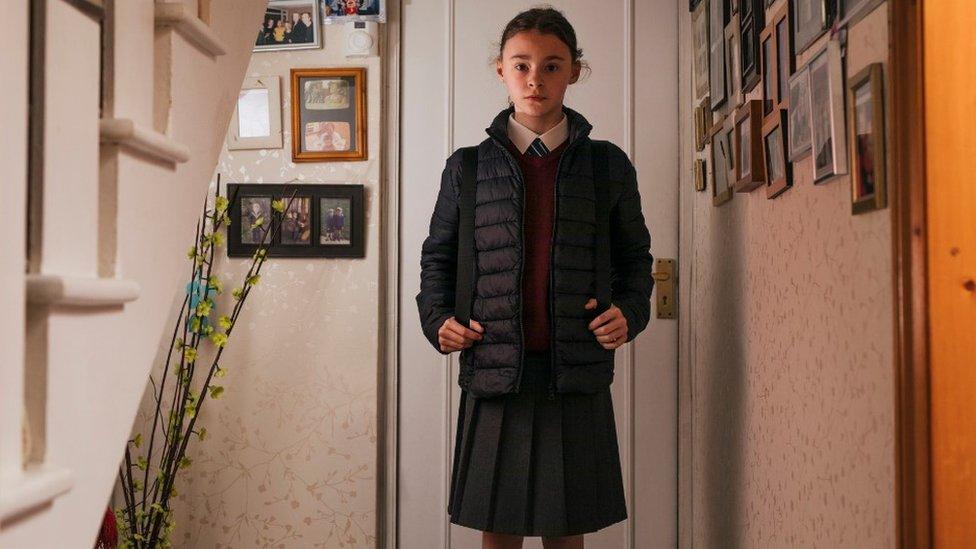Mental health placements: Ayla Haines 'petrified' over move
- Published
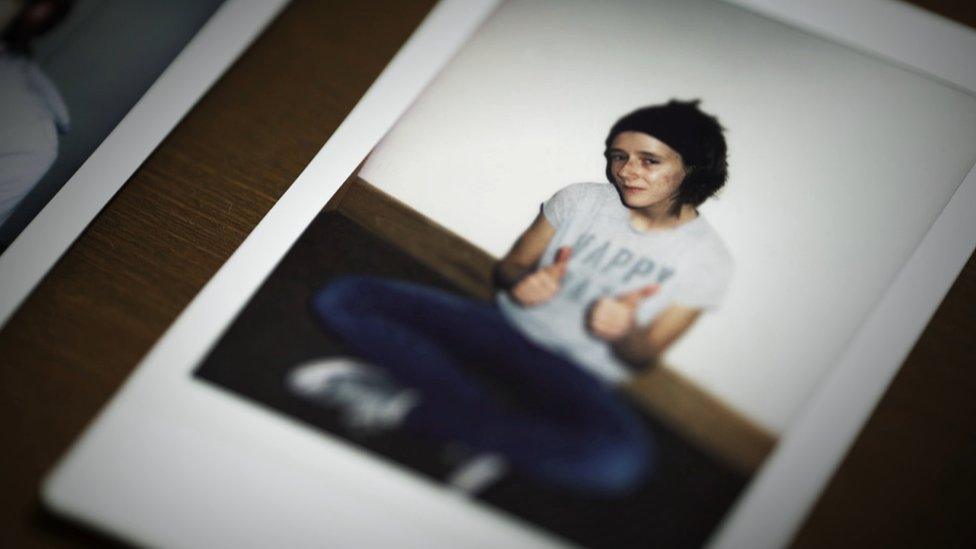
Ayla Haines has been receiving care in Northampton since 2016
The family of a west Wales woman in an English secure mental health unit fear she could be moved to a high-secure unit with dangerous offenders.
Ayla Haines, 27, is currently at St Andrew's Healthcare, in Northampton, which has some Welsh patients, but NHS Wales has suspended placements there.
The Welsh Government said in January the unit was "under enhanced monitoring".
Hywel Dda health board said patient safety was a "priority".
Ms Haines, from Llansteffan, in Carmarthenshire, has a number of mental health issues, including anorexia.
Her family, who have previously voiced concerns over her care at St Andrew's, said they were concerned about a lack of options for her care.
Her mother, Jane Haines, said she had been notified her daughter would be moved within two weeks, with the health board which commissions her care, Hywel Dda, laying out some options in east England.
"When you look at the places that they're looking to send her it's equally as frightening," she said.
"They're even further away from home and they're going to continue doing the same treatment that they've been doing for the past eight years, so it's really scary and Ayla is petrified at the moment.
"The future really is frightening. There's nothing to give any of us comfort."
The family said they had been told there was nowhere available for her in Wales.
In April last year, Ms Haines' case received national press attention when it was revealed she had swallowed a toothbrush as part of a series of desperate acts.
The Welsh Assembly's health and social care committee said it intended to begin looking into the current system for mental health care placements this week.
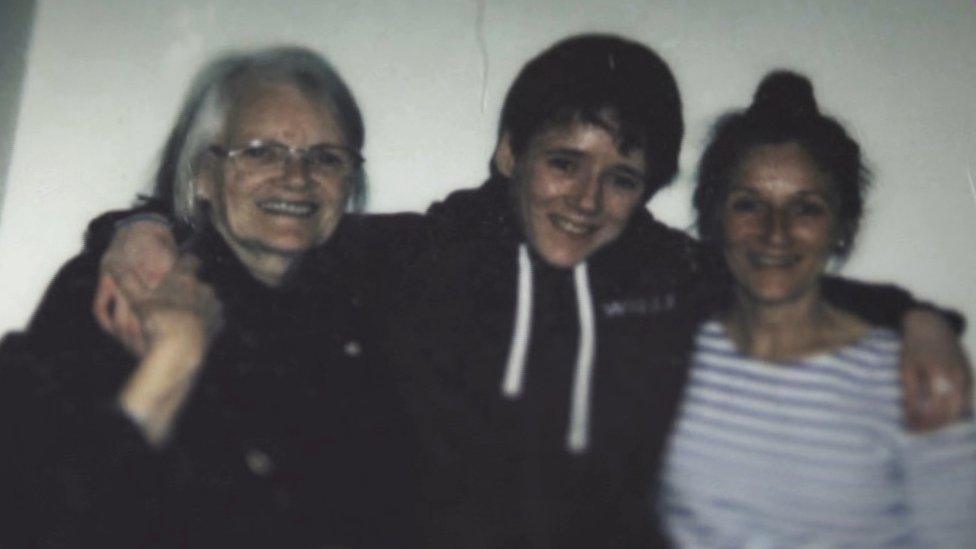
Ayla Haines with her grandmother and mother during a recent visit
Figures from the Welsh Government, suggest there were 96 patients placed at units in England last year.
However, around a third of them - 31 patients - were being cared for at sections of St Andrew's that are currently under "enhanced monitoring".
The Welsh Government has not clarified the issues at St Andrew's but said there was an "action plan" in place.
Meetings to track the progress against an "improvement plan" were continuing with England's health and social care services regulator, the Care Quality Commission, NHS England and NHS Wales, a spokesperson said.
Ms Haines' family want her to be assessed for autism before any decisions are made about a new placement.
The National Autistic Society said it had written to the local health board over concerns that Ms Haines may not have received a detailed assessment for autism.
"What we want to make sure is that, whenever anybody in a mental health unit is suspected of being autistic, they have a good-quality autism assessment," said Jane Harris, from the charity.
"Only when you can be absolutely sure if that person is autistic or not can you make a proper decision about their ongoing care and treatment."
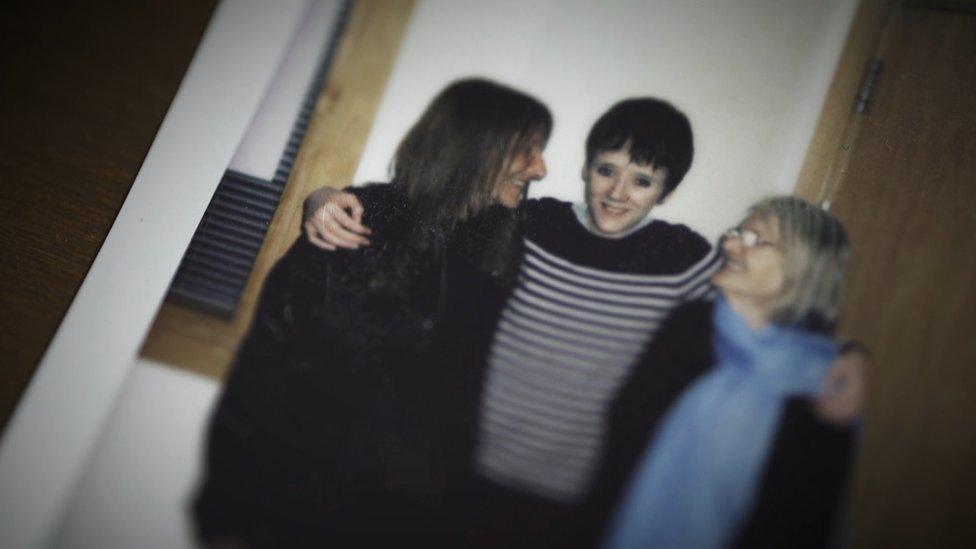
Ayla Haines with relatives during a visit
Both Hywel Dda University Health Board and the Welsh Health Specialised Services Committee, which looks after out-of-area placements, said they could not comment on individual cases.
The Welsh Government said the number of mental health patients receiving care outside of Wales had reduced in recent years.
"We are committed to ensuring people can access mental health and learning disabilities services as close to home as possible, when quality can be assured," a spokesperson said.
"However, on occasions care can only be provided at very specialist centres in England, which provide services for the whole of the UK."
'Closer to home'
St Andrew's said it was "significantly reducing" its number of beds to focus on community care.
A spokeswoman said: "We fully support the drive for care to be provided closer to home and recognise that in some instances because of a lack of local solutions this has resulted in individuals being placed many miles away from their homes and families."
She added: "We are working closely with patients, carers, staff members and commissioners in order to minimise the disruption to patients during these changes, however, when a patient is discharged from our care the decision about where they are placed is made by the patient's home team and commissioners."
- Published29 January 2020
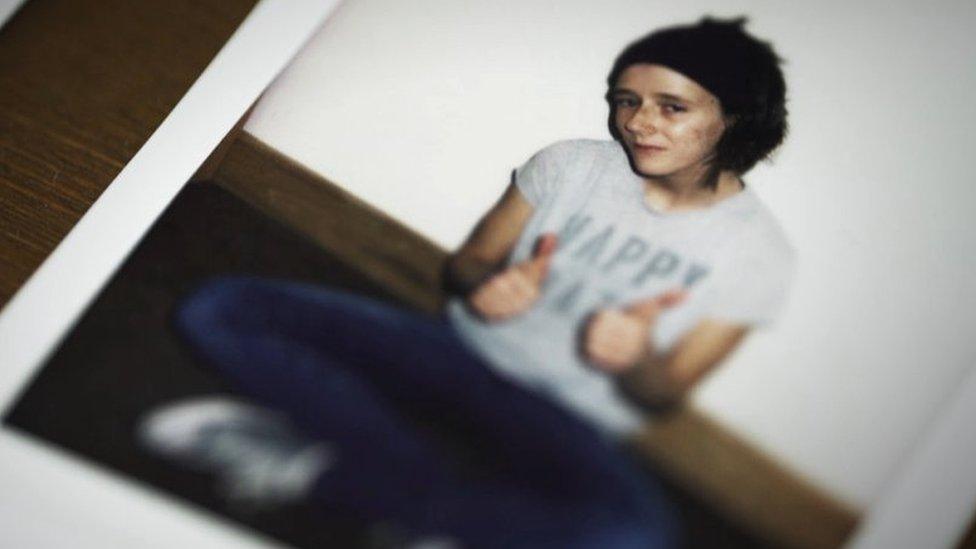
- Published29 March 2019

- Published25 October 2019
